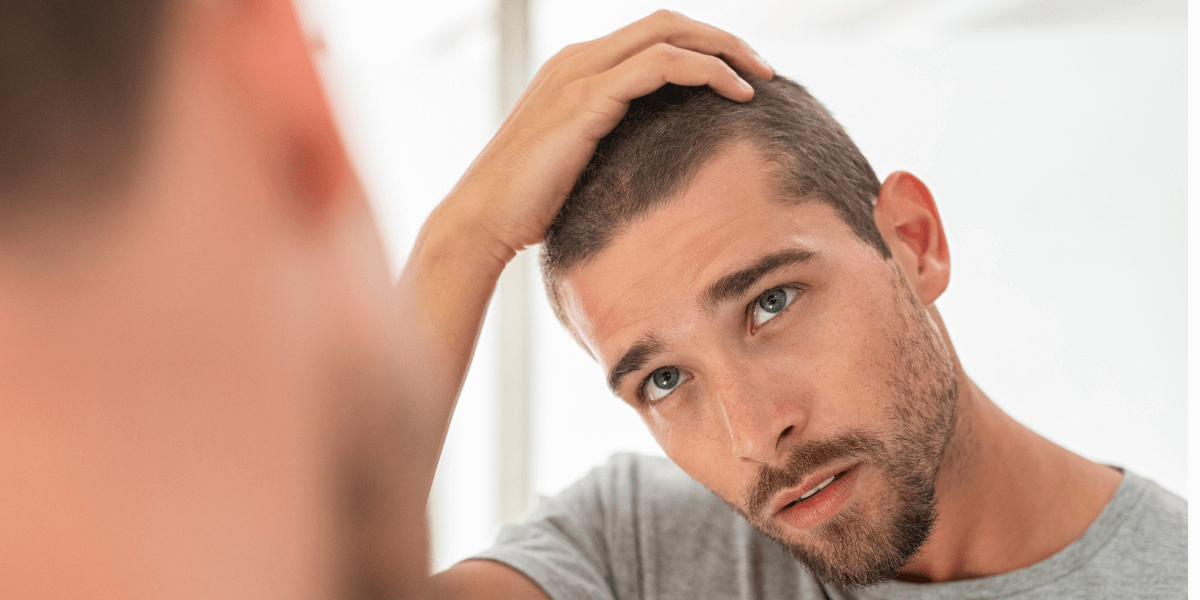Most people lose roughly 100 hairs every day from their scalp. While the majority of people regrow their hair, others cannot do so due to age, genetic, hormonal changes, medical disorders, poor diet, adverse effects of medical treatments such as chemotherapy, or stress, etc.
Medications including minoxidil (Rogaine) and finasteride (Propecia), hair transplant surgery, and laser therapy are all options for halting and possibly reversing hair loss.
What is a laser cap for hair loss?
Hair regrowth laser devices come in multiple shapes and sizes, including hats, helmets, caps, combs, and headbands. Low-level laser therapy (LLLT) is used in most laser hair growth caps to stimulate the scalp and hair follicles. Low-level laser therapy uses lower-power lasers that release photons that enter the scalp and target the hair follicles. The light emitted is in the red or infrared region. Photons from low-level lasers can enhance adenosine triphosphate (ATP) generation in follicle cells encouraging hair growth and metabolism, according to DermNet NZ. According to the Hair Society, laser light can also energize cells by promoting blood flow and nutrient transfer.
The theory
The hypothesis for laser hair loss treatment is based on the theory that low-dose laser treatments can activate blood circulation and stimulate hair follicles to grow hair again.
Does it work?
When it comes to laser hair regrowth equipment, consistency and patience are key. Before you notice hair regeneration, you may need to apply a laser hair cap for several months. It is best to repeat the treatment regularly for the best outcomes. According to hair restoration specialists, laser caps can effectively treat and delay hair loss in people facing the initial phases of hair thinning and loss. No treatment can totally prevent hair loss, especially when it is caused by heredity. However, when laser caps and other non-surgical hair restoration techniques are used properly and regularly, they can help reduce the problem of hair loss. A new laser therapy cap or helmet can improve hair volume and cover bald spots in men and women with androgenetic alopecia, according to a 2019 study published in Lasers in Medical Science.
Although various laser helmets on the market have received FDA safety approval, no efficacy trials have been done. The study of whether low-level laser hair devices are useful for specific hair loss problems is ongoing. Laser hair restoration devices are not for everyone, and their effectiveness is determined by the type of hair loss you experience. Your dermatologist can assess the sort of hair loss you are having, suggest lifestyle modifications for healthy hair, and direct you to the best treatment options.
As per a 2014 study, low-level laser therapy was found to be safe and effective for hair growth in men and women. A 2013 study of 41 men aged between 18 to 48 has found that laser hair treatment can enhance hair growth by 39% over a period of 16 weeks.
Positive impacts of laser treatment
Promoters cite multiple reasons to encourage laser treatment, including:
- It’s non-invasive
- It’s painless
- It has no side effects
- It strengthens hair
Negative impacts of laser treatment
- Time-consuming: Treatment often requires multiple sessions each week for several months, and in some cases, for the rest of your life.
- It’s expensive: Clinical laser hair loss treatments can be costly in the long run.
- Long-term safety and effectiveness yet to be fully established: The FDA classifies laser devices as medical devices, so they are not subjected to the same level of scrutiny and testing as pharmaceuticals before being approved. The long-term effectiveness and safety of LLLT have not been completely established.
- It can interact with certain medications: Patients who are using photosensitizing drugs should avoid laser therapy. A chemical change to the skin that enhances sensitivity to light is known as photosensitization.
- It may not be effective: People in the advanced phases of hair loss appear to have less success with the process than those in the early stages.
Don’t wait! Get help right now from our New Jersey Hair Restoration Center in NJ
Rapid hair loss could be a sign of a more serious underlying problem that needs to be treated. The sooner you address hair loss problems, the more likely you are to avoid permanent harm. Contact the New Jersey Hair Restoration Center now if you experience sudden hair loss symptoms. Our team can help you decide which treatment or treatment combination is best for you. Our experts at our hair restoration center in NJ can diagnose the specific type of hair loss that you are facing and its underlying cause. They then recommend the appropriate treatment and lifestyle changes to ensure you have healthy hair.


